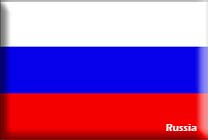Moscow summit "last chance" to resolve gas crisis, EU says
 Brussels/Moscow/Kiev/Berlin - Saturday's gas summit between Russia and Ukraine is the "last and best chance" for both sides to salvage their reputation as reliable suppliers, the European Union said Friday as it faced another freezing week with reserves running low.
Brussels/Moscow/Kiev/Berlin - Saturday's gas summit between Russia and Ukraine is the "last and best chance" for both sides to salvage their reputation as reliable suppliers, the European Union said Friday as it faced another freezing week with reserves running low.
Russia warned European leaders they must attend the Moscow summit if they cared to see gas flow renewed because bilateral talks would no longer suffices.
"Unfortunately, this issue has gotten beyond bilateral relation," Russian President Dmitry Medvedev was quoted by news agency Interfax as saying.
And there was no sign of the mutual acrimony softening ahead of the sensitive summit, with Medvedev declaring its aim as the prevention of "illegal attempts to block the transit of energy resources."
And Ukrainian President Viktor Yushchenko on Friday did his utmost to pull to beat Russia to the punch, announcing early Friday the heads of state of Poland, Lithuania, Slovakia, and Moldova would meet in Kiev for a blitz energy summit of his own.
On Saturday, Russian Prime Minister Vladimir Putin, who was in Germany ahead of the summit, is to sit for face-to-face talks with Ukraine's Prime Minister Yulia Tymoshenko in the highest-level meeting between both sides locked in a contractual dispute since January 1.
German Chancellor Angela Merkel is expected to urge Russia to adhere to its contractual obligations and resolve its dispute with Ukraine as soon as possible when she meets with Putin in Berlin, a government spokesman said.
A consortium of European energy firms were reviewing a proposal by Italy to pay for an initial boost in gas flows necessary to re-pressurize the pipelines and restore gas to Europe.
Germany's E. ON Ruhrgas, France's Gaz de France have joined ENI in the proposal and talks were underway with three other European energy firms, Gazprom deputy chief Alexander Medvedev said Friday.
The consortium's proposal would allow Kiev and Moscow to bypass the question of who should pay for the "technical gas" needed to jump star supplies - a main sticking point in their dispute.
The leaders of the Balkan nations, most suffering for the gas shortages, redoubled their entreaties to get the gas pumping.
But their desperate efforts contrasted with the skeptical attitude in Brussels to the Russian invitation, with French President Nicolas Sarkozy declaring he would not be traveling to Moscow.
"We consider that as Russian and Ukraine are not complying with their obligations for gas deliveries the conditions for a summit are insufficient," French Foreign Ministry spokesman Eric Chevallier said late Thursday.
The Czech EU presidency said it would attend the summit, but reserved harsh judgment of both parties, saying they had "irrevocably" damaged their credibility.
"I wish that the discussion in the EU would no longer be about bilateral agreements but about a common European policy ... it indicates a need to lower dependence," Czech Prime Minister Mirek Topolanek said Friday.
"How much more serious will this crisis become?," Bulgarian President Georgi Parvanov said in a speech backing a new EU energy policy amid the ongoing gas dispute.
Slovak Prime Minister Robert Fico - who has said his country will be forced to drastic measures if his country is still starved of gas in 10 days - showed willingness to strike separate deals at Saturday's summit.
"If it is possible, I would favor finding an effective solution for securing gas (for Slovakia)," Fico said.
Bulgaria, which is 95 per cent dependent on Russia for gas, and Slovakia have born the brunt of the gas cut-off being forced to shut factories and seek alternative emergency energy deliveries as thousands of homes were left without heat.
Russia cut all supplies of gas to Ukraine on January 7, accusing Kiev of siphoning off deliveries to Europe, 80 per cent of which travel through its pipelines.
The cut off in supplies of Russian gas has already bled stocks in western Europe, according to data from Gas Storage Europe (GSE), a Brussels-based organization of the industry, on Friday.
Stocks in Germany, which relies on Russia for 37 per cent of its gas, stood at 59 per cent full as of Monday.
Feeding the stand-off are long-simmering political tension between the two post-Soviet neighbours.
Moscow resents moves by Ukraine's pro-Western president, Yushchenko, to join NATO and its support for Georgia during that country's war with Russia in August.
And as the current crisis increased the bad blood between Kiev and Moscow, the two are farther than ever from reaching a compromise for Ukraine's own gas deliveries in 2009.
Gazprom now demands Kiev pay 450 dollars per 1,000 cubic metres for gas in 2009, closer to EU prices but up from 179.5 dollars last year. It still claims a 614-million-dollar debt for late payments.
And it maintains that Kiev should cover the near 1-billion-dollar cost of the "technical gas" to restart on-shipments.
Analysts say these will be hard blows for Ukraine's near bankrupt economy to suffer, and with sufficient gas reserves for a few months yet, it will have no impetuous to drive for a direct resolution that could produce high bills. (dpa)